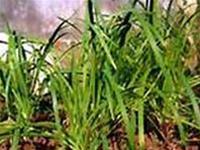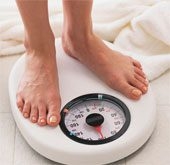Excessive sweating can be alleviated through delicious and easy-to-cook dishes such as eel porridge, stir-fried clams with chives, pig heart stewed with Chinese angelica, and pig stomach stewed with glutinous rice…
 |
Chives |
In hot weather or when wearing too many clothes, eating in haste, or engaging in strenuous activities, sweating is a normal phenomenon. However, if sweating occurs excessively even while sitting calmly in normal air temperature, it indicates a pathological condition, which Traditional Chinese Medicine refers to as “han zheng” (sweating syndrome). This condition can be classified into four main types:
– Night sweats that cease upon waking, known as “dao han” (night sweats).
– Sweating while awake, not due to heavy labor or hot weather, referred to as “zi han” (spontaneous sweating).
– Localized sweating in specific areas such as the head, forehead, chest, armpits, one side of the body, hands, or feet, known as “bu bu han.” Among these, “wu xin han” (sweating from the palms, soles, and chest) is the most common.
– Abnormal sweat characteristics such as thick and oily, yellow (huang han), red (hong han), or having a foul odor.
According to Traditional Chinese Medicine, the primary causes of sweating syndrome are deficiencies in yin or yang.
Yin deficiency symptoms: Sweating mainly occurs during sleep (dao han). The complexion often becomes flushed intermittently, especially on the cheeks; the tongue appears red with little coating; throat feels dry or there is a dry cough with little phlegm; palms and soles are often warm, and there may be a slight fever in the late afternoon.
Yang deficiency symptoms: Sweating primarily occurs during the day while awake but can occasionally happen at night. Accompanied by symptoms such as a pale or dull complexion, a pale tongue; slight exertion leads to fatigue or shortness of breath, restlessness, and palpitations. Individuals with “yang deficiency” also have a low tolerance to cold and exhibit two notable features: the tips of their toes are often cool, and they sweat profusely with minimal activity.
To treat this condition, dietary adjustments are important. Those with yang deficiency should avoid spicy and hot foods that stimulate sweating as well as cold raw dishes that damage yang energy. Conversely, individuals with yin deficiency should refrain from excessive fatty fried foods to prevent the accumulation of “fire” within, which worsens their condition. Depending on individual circumstances and specific symptoms, the following dishes can be selected for treatment:
Eel Soup: 150-200 g of eel. Rinse the eel in hot water to remove slime; gut it, chop it into small pieces, and fry with a little oil until golden brown; add water to make soup and consume once daily for three consecutive days. Effect: Treats night sweats due to yin deficiency.
Eel Porridge: 50-60 g of eel meat, rice to taste. Cook into porridge and divide it to eat in the morning and at night before bed. Effect: Treats night sweats due to weakened body after illness.
Clams Stewed with Chives: 30 g of clam meat (or cockles, oysters), 60 g of chives. Soak clam meat in warm water, add chopped chives, and stew until cooked to eat with meals. Effect: Nourishes yin and strengthens yang, used to treat night sweats due to weakened body.
Apricot and Jujube Decoction: 10 pieces each of apricot and jujube; simmer with water, combine, and drink throughout the day for 10 days. Effect: Used to treat excessive sweating due to yin deficiency.
Astragalus and Jujube Decoction: 15 g of astragalus; 20 jujubes. Simmer with water on low heat for about 1 hour; divide into 2-3 doses to drink and eat jujubes; continue for 15 days. Effect: Treats excessive sweating due to yang deficiency.
Heart Stewed with Chinese Angelica: 1 pig heart, 10 g of codonopsis, 6 g of Chinese angelica. All ingredients are stewed until cooked, seasoned, and the heart is eaten with the broth. Effect: Treats excessive sweating due to body weakness and also helps with sleep issues in children.
Stomach Stewed with Glutinous Rice: 1 goat stomach (or pig stomach), 60 g of glutinous rice, 15 jujubes (pits removed). Clean the stomach, soak glutinous rice until soft, stuff it with jujubes, tie it securely, and cook in a water bath until tender; slice and serve with meals. Effect: Nourishes qi and blood, enhances digestion, treats both night sweats and spontaneous sweating.
Lotus Seed and Glutinous Rice Root Decoction: 30 g of glutinous rice root, 30 g of lotus seeds. Clean the glutinous rice root, peel the lotus seeds and remove the core; simmer on low heat until the lotus seeds are tender. Eat the seeds and drink the broth. Effect: Treats excessive sweating due to recovery after illness.
Jujube and Glutinous Rice Root Decoction: 30-60 g of glutinous rice root, 6-7 jujubes; simmer to drink throughout the day. Effect: Treats both spontaneous sweating and night sweats.
Black Bean and Jujube Decoction: 30 g of black beans, 10 g of longan, 30 g of jujube. Clean all ingredients, place in a clay pot, and simmer on low heat for about one hour, dividing into two doses to drink throughout the day; continue for 15 days. Effect: Treats excessive sweating due to body weakness.
Traditional Healer NGUYEN THANH HUNG




















































